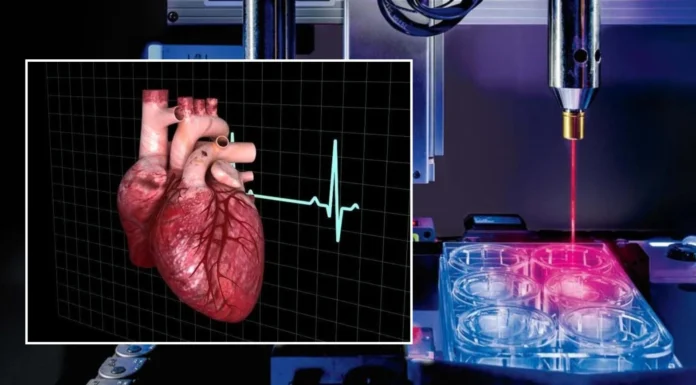An innovative cardiac patch developed by researchers from ETH Zurich and Zurich University Hospital in Switzerland could change the approach to treating heart damage after a heart attack.
Unlike existing methods that merely close damaged areas, the new cardiological patch, known as RCPatch (Reinforced Cardiac Patch), aims to heal the heart by integrating into the tissue and promoting its regeneration.
Currently, the standard option for heart defects, especially where there is a risk of a heart wall rupture, is Bovine Pericardial Patches (BPPs). While these patches are effective in providing stability, they are biologically inert, meaning they do not integrate into the heart tissue and can cause complications such as inflammation, calcification, or thrombosis.
An interdisciplinary team, led by Professors Robert Katzschmann and Omer Dzemal and working on the creation of RCPatch, aimed to eliminate these shortcomings and achieve full integration of the patch with the heart. “Traditional patches remain foreign bodies in the heart. Our patch is different—it degrades over time and is replaced by natural tissue,” said Luis Jones, the study’s lead author.
RCPatch consists of three distinct components:
- A thin mesh that covers the damaged area of the heart.
- A 3D-printed scaffold made from a degradable polymer that provides mechanical strength.
- A hydrogel saturated with living heart muscle cells to promote biological integration and healing.
This combination creates a durable, flexible, and bioactive patch that not only stabilizes the heart wall but also facilitates tissue regeneration. Over time, as new tissue grows, the scaffold breaks down, leaving behind no foreign, hazardous material.
The artificial material, RCPatch, was successfully tested on pigs. It was used to repair a defect in the damaged area of the heart wall. It successfully closed the defect, restored heart function, and maintained its integrity even under conditions of high blood pressure.
This research is a significant step forward in the field of treating heart damage. Long-term studies of the patch in animals will allow researchers to confirm that the material can regenerate damaged tissue. If these studies are successful, RCPatch may pave the way for new approaches to cardiac therapy.


